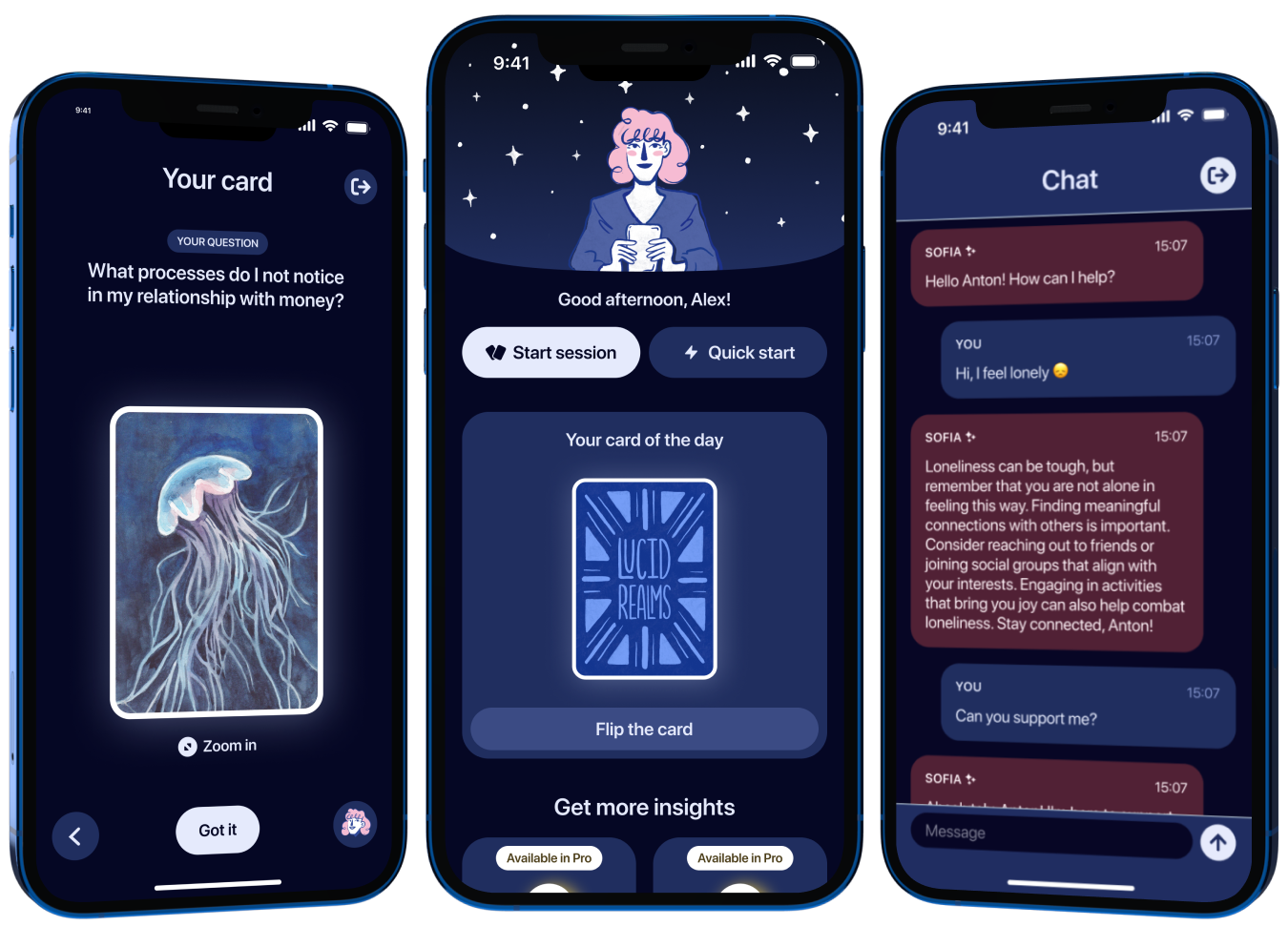We use cookies to give you a tasty experience!
Cookie Settings
We use cookies and data to:
Deliver an excellent service
Track outages and issues
Protect against spam, fraud and abuse
Measure site statistics to enhance the quality of our services
By continuing to browse our site, you’re agreeing to our use of cookies.
Deliver an excellent service
Track outages and issues
Protect against spam, fraud and abuse
Measure site statistics to enhance the quality of our services
By continuing to browse our site, you’re agreeing to our use of cookies.
Who Invented Metaphoric Cards?
A Brief History
Metaphoric cards are a type of psychological tool that uses images to stimulate conversation and reflection. They were first created by art history professor Eli Raman in 1975, who was inspired by his love of art and card games.
Raman's original cards were simply his own paintings, but he soon realized that they could be used to evoke a deeper emotional response in viewers. He teamed up with psychotherapist Joseph Schlichter to develop a more formal set of cards, which were published in Canada in 1981.
The first deck of metaphorical cards was called "Oh," which is the sound that people often make when they see something unexpected or surprising. The deck consists of two types of cards: drawings and text cards. The drawings are abstract or figurative images, while the text cards contain words that have psychological significance, such as "hope," "love," or "hide."
To use the cards, a person draws one from each deck and then superimposes them on top of each other. The resulting combination of image and text can then be used to explore the person's thoughts, feelings, and experiences.
The "Oh" deck was a success, and it soon led to the development of other metaphorical card decks. Today, there are dozens of different decks available, each with its own unique set of images and text.
Metaphoric cards are a versatile tool that can be used in a variety of settings. They are often used in psychotherapy, but they can also be used in coaching, education, and personal development.
The cards are a powerful way to access the subconscious mind and to explore our inner selves. They can help us to understand our thoughts, feelings, and behaviors in a new way. They can also help us to develop new perspectives and to make positive changes in our lives.
Raman's original cards were simply his own paintings, but he soon realized that they could be used to evoke a deeper emotional response in viewers. He teamed up with psychotherapist Joseph Schlichter to develop a more formal set of cards, which were published in Canada in 1981.
The first deck of metaphorical cards was called "Oh," which is the sound that people often make when they see something unexpected or surprising. The deck consists of two types of cards: drawings and text cards. The drawings are abstract or figurative images, while the text cards contain words that have psychological significance, such as "hope," "love," or "hide."
To use the cards, a person draws one from each deck and then superimposes them on top of each other. The resulting combination of image and text can then be used to explore the person's thoughts, feelings, and experiences.
The "Oh" deck was a success, and it soon led to the development of other metaphorical card decks. Today, there are dozens of different decks available, each with its own unique set of images and text.
Metaphoric cards are a versatile tool that can be used in a variety of settings. They are often used in psychotherapy, but they can also be used in coaching, education, and personal development.
The cards are a powerful way to access the subconscious mind and to explore our inner selves. They can help us to understand our thoughts, feelings, and behaviors in a new way. They can also help us to develop new perspectives and to make positive changes in our lives.
Modern Metaphoric Cards
n recent years, there has been a growing interest in metaphorical cards. This is due in part to the increasing popularity of psychotherapy and the growing recognition of the importance of the subconscious mind.
Today, there are metaphorical cards available for a variety of purposes. There are decks that can be used to explore specific issues, such as relationships, self-esteem, or anxiety. There are also decks that can be used for general personal development.
Metaphoric cards are a valuable tool for anyone who is interested in self-growth. They can help us to understand ourselves better, to make positive changes in our lives, and to achieve our goals.
If you are interested in learning more about metaphorical cards, I encourage you to do some research online. There are many resources available, including websites, articles, and books. You can also find workshops and trainings offered by therapists and coaches.
Today, there are metaphorical cards available for a variety of purposes. There are decks that can be used to explore specific issues, such as relationships, self-esteem, or anxiety. There are also decks that can be used for general personal development.
Metaphoric cards are a valuable tool for anyone who is interested in self-growth. They can help us to understand ourselves better, to make positive changes in our lives, and to achieve our goals.
If you are interested in learning more about metaphorical cards, I encourage you to do some research online. There are many resources available, including websites, articles, and books. You can also find workshops and trainings offered by therapists and coaches.
Modern Metaphoric Cards
n recent years, there has been a growing interest in metaphorical cards. This is due in part to the increasing popularity of psychotherapy and the growing recognition of the importance of the subconscious mind.
Today, there are metaphorical cards available for a variety of purposes. There are decks that can be used to explore specific issues, such as relationships, self-esteem, or anxiety. There are also decks that can be used for general personal development.
Metaphoric cards are a valuable tool for anyone who is interested in self-growth. They can help us to understand ourselves better, to make positive changes in our lives, and to achieve our goals.
If you are interested in learning more about metaphorical cards, I encourage you to do some research online. There are many resources available, including websites, articles, and books. You can also find workshops and trainings offered by therapists and coaches.
Today, there are metaphorical cards available for a variety of purposes. There are decks that can be used to explore specific issues, such as relationships, self-esteem, or anxiety. There are also decks that can be used for general personal development.
Metaphoric cards are a valuable tool for anyone who is interested in self-growth. They can help us to understand ourselves better, to make positive changes in our lives, and to achieve our goals.
If you are interested in learning more about metaphorical cards, I encourage you to do some research online. There are many resources available, including websites, articles, and books. You can also find workshops and trainings offered by therapists and coaches.





